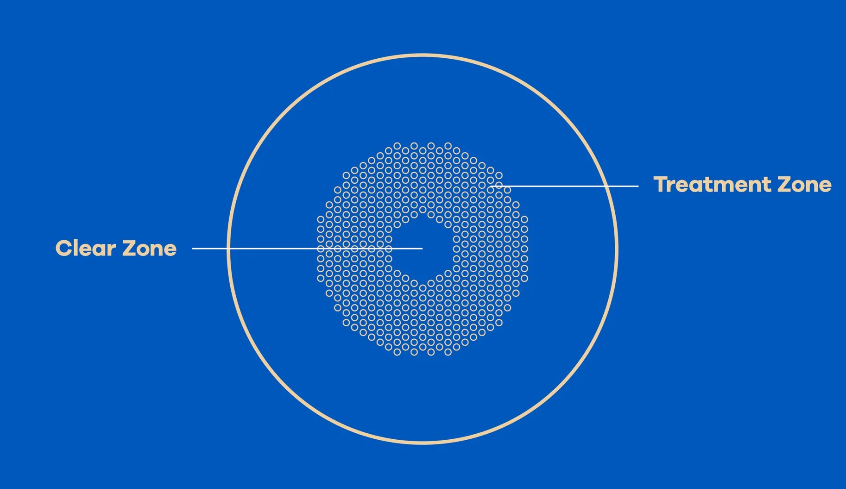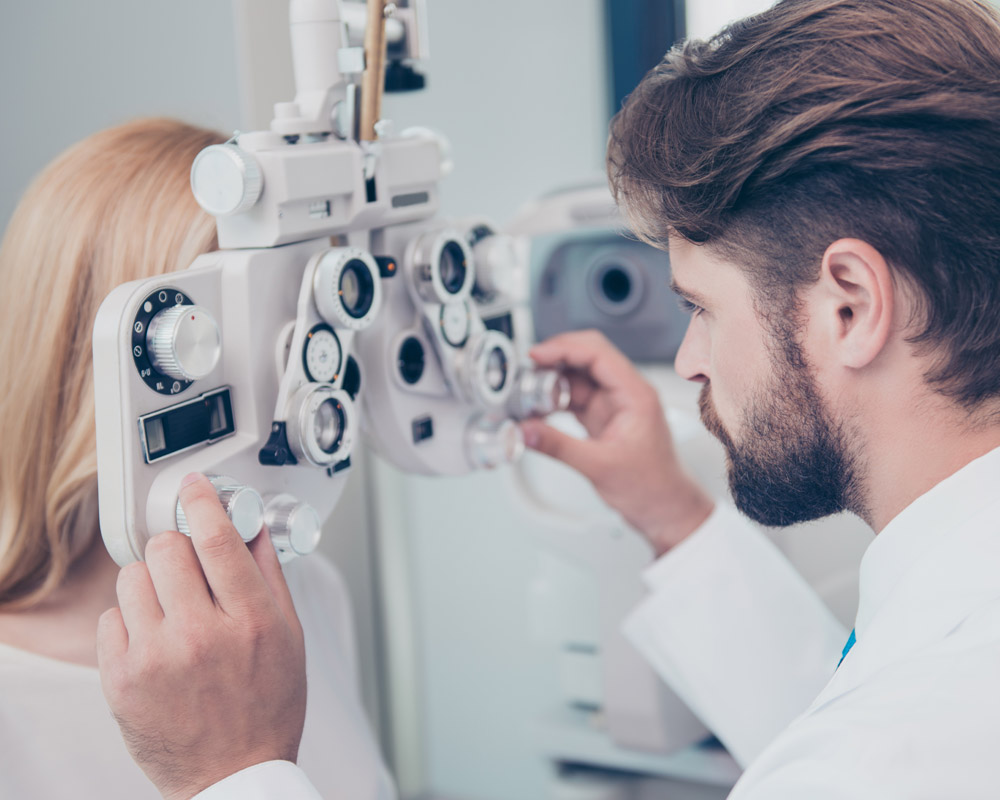Myopia Management
What is myopia?
Myopia (or short-sightedness) is a common condition that means the distant objects are often blurred whereas nearer objects are clearer. The most common cause of myopia is the eyeball being slightly larger than average which means the light is focused in front of the retina instead of onto the retina. You can develop it at any age, however, is much more common to develop in childhood, and the degree of myopia tends to increase over time. The most common treatment for myopia currently is spectacle or contact lens wear. As myopia increases the strength of the spectacle lens needs to increase to ensure clear vision.
The risk of developing myopia is commonly associated with; a family history of myopia, ethnic background and environment (such as spending time indoors and carrying out near work). As well as requiring spectacles to see clearly, people with myopia are also slightly more at risk of developing eye conditions as they go through their life. These include myopic maculopathy, Retinal Detachment, Cataract and Glaucoma.
What is myopia management?
Because of the progressive nature of myopia, the risk of certain eye conditions and its increasing prevalence, several studies have looked at treatments aimed at slowing the progression of myopia. these studies looked at using Atropine eyedrops, Specialist contact lenses (Some worn during the day and some worn overnight) and specialist spectacle lenses.
The studies showed that these forms of treatment we're able to slow the progression of myopia for some people but not for everyone. None of the treatments prevented myopia from developing, they merely slowed progression in some individuals.
Because these interventions are still at an early stage the long-term consequences of treatment are not currently known. Many of these interventions were also tested on a South East Asian population, where myopia is significantly more prevalent, and therefore we cannot be certain the results would be replicated in the UK, however further studies are ongoing to test this
Should I consider myopia management?
The information we currently have on myopia management gives us confidence that myopia progression is slowed in groups who are treated compared to groups who are not. However as this evidence is based on population rather than individual changes, it is difficult to be certain whether the intervention has slowed the progression of myopia in an individual case. We can't currently predict how much your myopia will change in a year and therefore we cannot currently show that the treatment has successfully worked on an individual case.
However, due to the progressive nature of myopia and the evidence that appears to show there is potential for this progression to be slowed we want to ensure our patients are aware of all options. We now offer myopia management using specialist spectacle lenses and contact lenses where appropriate. These interventions are only available privately and will require at least six-monthly eye examinations. Both interventions worked by allowing clear central vision what's blurring the peripheral vision slightly.
With contact lens wear the risks are no higher than wearing a conventional contact lens, and the same can be said for the spectacles.
If you are interested in looking into this further, we have more detailed information sheets and a list of the costs involved.
Myopia management Costs
Myopia management is currently considered a private intervention and is therefore not covered by the NHS. There are two costs associated with it cost of examination and assessment and cost of spectacles or contact lenses depending on which is considered appropriate. Assessments are usually every 6 months but may be more frequent if needed.
Myopia Management costs
| Aftercare appointments | £45 per month for each 12 month period |
| Miyo smart Spectacles | 1st pair of lenses included in DD above. Replacement lenses included if change is more than -0.50 in 12 month period. |
| Additional pairs of lenses (eg if lost or damaged, beyond repair or spare pairs) | £185 |
Myopia management with Contact lenses:
| MiSight Contact lenses | £45 per month |




